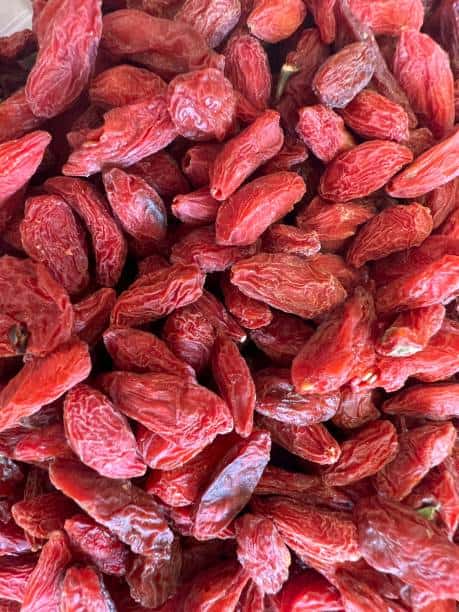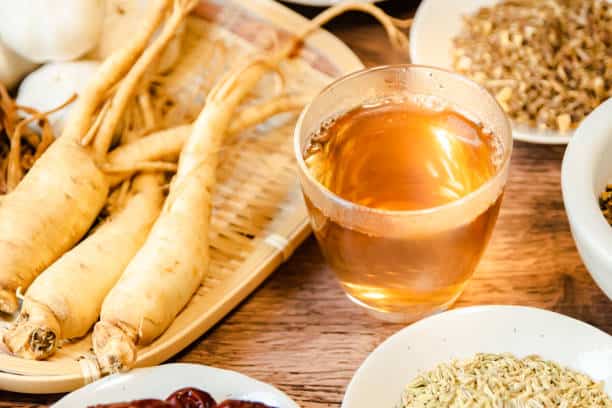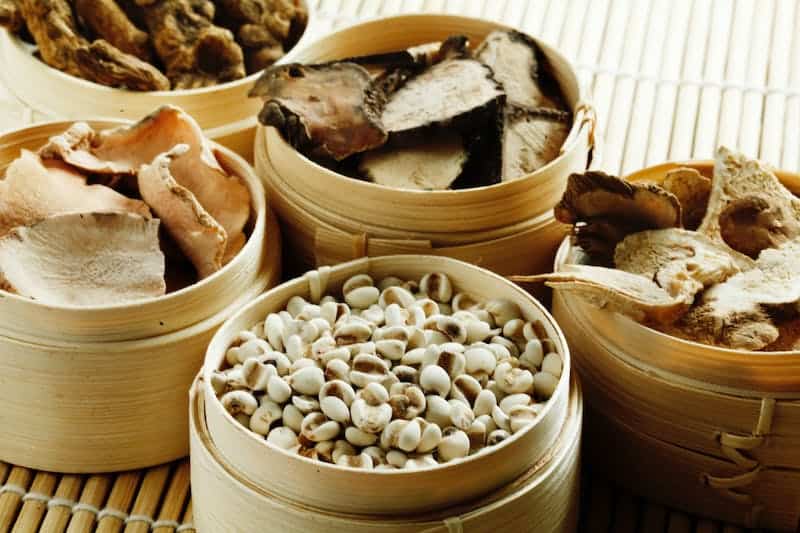Traditional Chinese Medicine (TCM), with its roots dating back thousands of years, has a profound history of improving health. One of the critical elements of TCM is the use of Chinese herbal medicines. These medicinal herbs, such as Ginseng, Reishi Mushrooms, Astragalus Root, and Ginkgo Biloba, have a wide range of health benefits. They include boosting the immune system, promoting heart health and even aiding in weight loss. In addition, with minimal side effects, these herbs can be a beneficial supplement to our daily diet. We will delve into the ten health benefits of TCM herbs backed by clinical studies and research.
#1 Immune System Boost
A robust immune system is the first defense against many health conditions. The traditional medicine field of TCM offers several herbs known for their immune-boosting properties. One such herb is Astragalus Root, also known as Huang Qi. Studies show that Astragalus Root enhances immune health by increasing the production of immune cells and reducing oxidative stress. This helps protect the body against diseases and infections.

#2 Regulate Blood Pressure
High blood pressure is a common concern in modern society, often linked with heart disease and stroke. Asian Ginseng, particularly Korean Red Ginseng, has been shown in clinical trials to benefit blood pressure. It’s thought that Ginseng enhances blood flow and blood circulation, promoting overall cardiovascular health.
#3 Anti-Aging Effects
As we grow older, it’s natural to seek ways to slow down the visible and internal signs of aging. Goji berries, a staple in TCM, are packed with antioxidants that fight free radicals, slowing aging. They also aid in boosting energy levels and reducing chronic fatigue.

#4 Improved Mental Health
Mental health, a crucial aspect of overall well-being, is another area where TCM herbs can benefit. For example, ginkgo Biloba helps improve cognitive function and potentially delay the onset of Alzheimer’s disease. It works by enhancing blood flow to the brain, thus improving cognitive function and overall brain health.
#5 Diabetes Management
Chinese herbs like American Ginseng have shown promise in managing blood sugar levels. A clinical trial demonstrated that American Ginseng could reduce blood sugar levels in people with type 2 diabetes. In addition, it may increase insulin production and improve insulin resistance. This provides a natural supplement to help manage this common health condition.

#6 Anti-Inflammatory Effects
Inflammation is a typical response to injury or disease. Still, chronic inflammation can lead to autoimmune disorders and other health problems. Holy Basil, another herb often used in TCM, has significant anti-inflammatory effects. Studies have shown that Holy Basil can reduce inflammation and help manage conditions like rheumatoid arthritis.
#7 Liver Health
Liver damage can result from various factors, including disease, toxic substances, and certain medications. Several Chinese herbs, such as Reishi Mushrooms, are known for their protective effects on the liver. These herbs can potentially reduce liver inflammation and help prevent liver damage.

#8 Anticancer Effects
While no cure-all exists for cancer, certain TCM herbs have shown potential anticancer effects. Reishi Mushrooms, for instance, help inhibit the growth of cancer cells in some clinical studies. This suggests that, alongside traditional Western medicine, Chinese herbal remedies may play a role in comprehensive cancer care and management.
#9 Stress and Cortisol Management
Adaptogenic herbs are a unique class of healing plants that enhance the body’s ability to resist and reduce stress. Asian Ginseng, also known as Panax Ginseng, is an adaptogenic herb that can lower cortisol levels. This helps to manage stress effectively. Studies have shown that it also can improve mental performance and mood in people under stress.
#10 Weight Management
Traditional Chinese medicine has long been associated with weight loss and management. For instance, Goji berries, rich in fiber and low in calories, can aid in weight loss. They do this by increasing metabolism and fat oxidation. These berries are a great addition to your daily diet, providing abundant nutrients alongside their weight management properties.
Ancient History of Chinese Herbal Medicine
Chinese herbal medicine is a critical component of TCM, a comprehensive health system with a history of over 2,500 years. This ancient practice has evolved from centuries of practical application and empirical results.
The earliest records of TCM date back to the 3rd century BCE with the writing of the “Huangdi Neijing” (The Yellow Emperor’s Inner Canon). This ancient text details the theories behind TCM. These include the concept of Qi (life energy), Yin and Yang (opposite forces that make up the universe), and the five elements (wood, fire, earth, metal, and water). These principles form the basis of TCM and guide the use of herbs in Chinese medicine.

As with other components of TCM, the practice of Chinese herbal medicine centers around the concept of balance and harmony. The use of herbs helps treat specific symptoms. Moreover, they restore equilibrium within the body and address the root causes of illness.
Through centuries of observation and experimentation, Chinese practitioners have cataloged hundreds of medicinal herbs, each with unique properties and indications. This extensive knowledge has been passed down through generations. The “Bencao Gangmu” (Compendium of Materia Medica), for example, is a comprehensive text on herbal medicine, created during the Ming Dynasty in the 16th century.
Chinese herbal medicines are typically formulas combining several herbs to enhance their therapeutic effects and minimize potential side effects. In addition, these formulas can be tailored to the individual’s condition, reflecting TCM’s holistic and personalized approach.
Over the centuries, Chinese herbal medicine has spread across the globe. Thus influencing other traditional medicine systems, including those in Japan, Korea, and Vietnam. It continues to be an integral part of healthcare for millions worldwide.
Traditional Chinese Medicine and Western Medicine
In recent years, the interest in Chinese herbal medicine has grown in Western countries, prompting numerous clinical trials and research studies. This has led to an increased understanding of the medicinal properties of these herbs and their potential in modern healthcare.
While the principles of Chinese herbal medicine may differ from those of Western medicine, the two can complement each other in providing a holistic approach to health and well-being. In addition, the rich history and extensive knowledge of Chinese herbal medicine offer valuable insights and resources that can contribute to advancing global healthcare.

The world of Traditional Chinese Medicine opens a doorway to many herbal remedies that, when incorporated into our daily diet, can offer various health benefits. From boosting our immune system, managing blood pressure, and aiding in the aging process to improving mental health, managing diabetes, and offering anti-inflammatory effects, these herbs have minimal side effects and complement Western medicine.
However, it’s essential to remember that while these herbs can provide beneficial effects, they should not replace conventional medical treatment. Always consult a healthcare provider before incorporating new herbal remedies into your regimen, especially if you have existing health conditions or are taking other medications.
Despite the differences in approach, TCM and Western medicine aim to achieve the same goal – improving and maintaining health. Integrating the wisdom of TCM with the advancements of Western medicine can pave the way for a more holistic approach to health and well-being.
Continued Research on the Health Benefits of Traditional Chinese Medicine Herbs
Furthermore, utilizing TCM herbs could extend to enhancing energy levels, managing chronic fatigue, and even improving symptoms of autoimmune disorders. Our understanding and application of these natural remedies will undoubtedly expand with the continued exploration of these herbs through clinical trials and studies.
For instance, the adaptogenic properties of certain herbs like Korean Red Ginseng boost energy levels, providing a natural remedy for chronic fatigue1. The beneficial effects of these herbs could be helpful for individuals experiencing energy dips throughout the day or those dealing with chronic fatigue syndrome.

Moreover, some TCM herbs have shown promise in managing autoimmune disorders. For example, reishi mushrooms, known for their immune-modulating effects, may help balance the immune response in autoimmune conditions. However, more extensive clinical trials will help to fully understand and validate these effects.
Final Thoughts
While TCM herbs offer various health benefits, the importance of quality when sourcing these herbs is worth noting. As with any form of medicine, the source and preparation of these herbs can significantly impact their efficacy and safety. Thus, sourcing these medicinal herbs from reputable suppliers and seeking advice from health professionals well-versed in TCM is crucial.
The positive effects of TCM herbs are beneficial to our physical health but also to our mental health. Herbs such as Holy Basil and Ginkgo Biloba help to enhance mental clarity and reduce symptoms of anxiety and depression. This makes them a potential complementary treatment for mental health disorders alongside conventional therapies.
In summary, integrating TCM herbs into our daily regimen presents an opportunity to improve our overall health and well-being holistically. However, as with any health-related decision, it is essential to consult with healthcare professionals to personalize and optimize the use of these herbs for your specific health conditions.
From boosting our immune health, regulating blood pressure, managing the aging process, and improving mental health, to aiding in weight loss, managing diabetes, and demonstrating anticancer and anti-inflammatory effects, the potential benefits of TCM herbs are indeed vast. However, it is vital to remember that while these herbs offer promising health benefits, they are not a substitute for professional medical advice and should be part of a comprehensive health plan.
As our understanding of these herbs continues to expand through ongoing research and clinical studies, we can look forward to new insights and applications of these potent natural remedies, bringing the wisdom of TCM to the forefront of modern healthcare.



